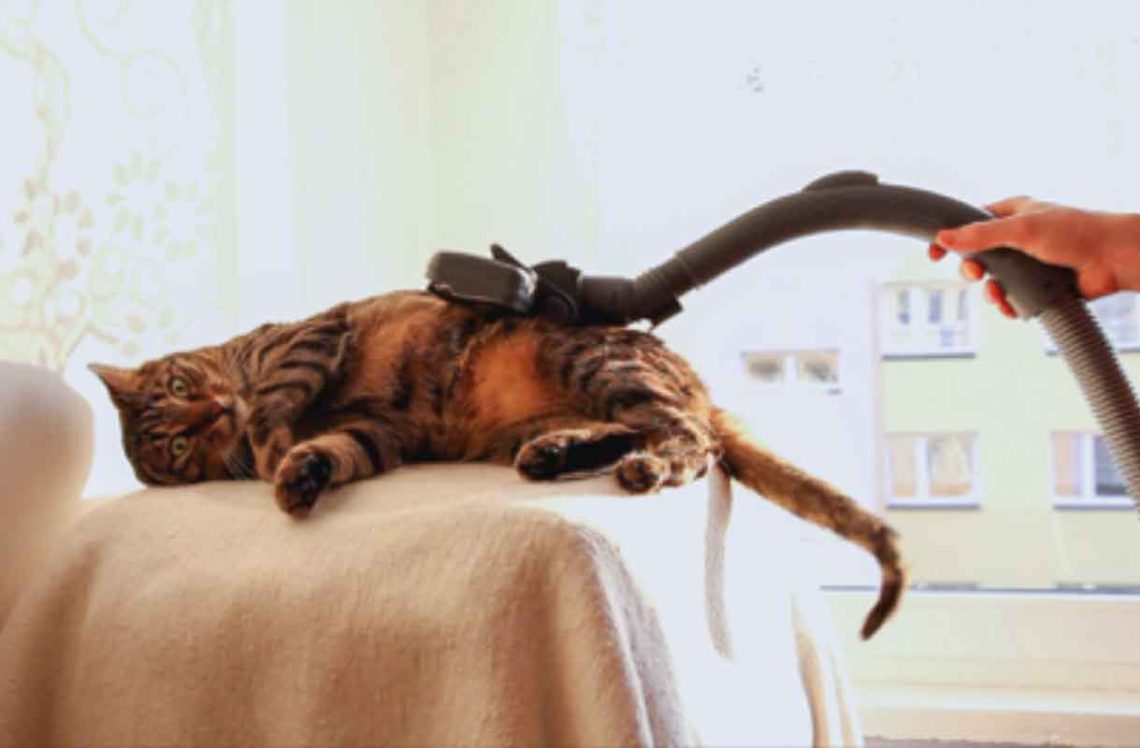
Why are cats afraid of vacuum cleaners?
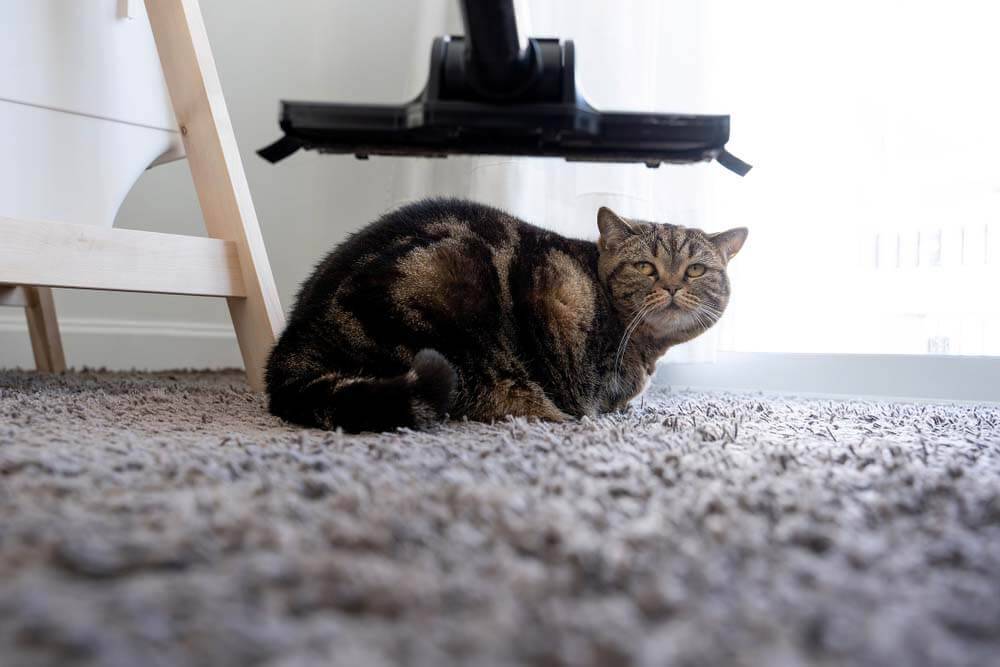
Contents
What signs indicate the fear of the animal?
In general, the signs that cats are afraid of a vacuum cleaner coincide with the usual manifestations of fear in animals. In stressful situations, they may try to become invisible to the object of their experiences – to freeze in place or, conversely, to shrink into the ground and lower their head. In addition, most problems, including cleaning, our furries simply avoid by hiding under the sofa or making an escape to another room. Pets can arch their backs and raise their fur, open their eyes wide, hiss, show aggression, defecate in places that are not allowed for this. Finally, when confronted with unfamiliar sounds, quadrupeds can quickly move their ears, trying to listen to the noise, or press their ears to their heads.
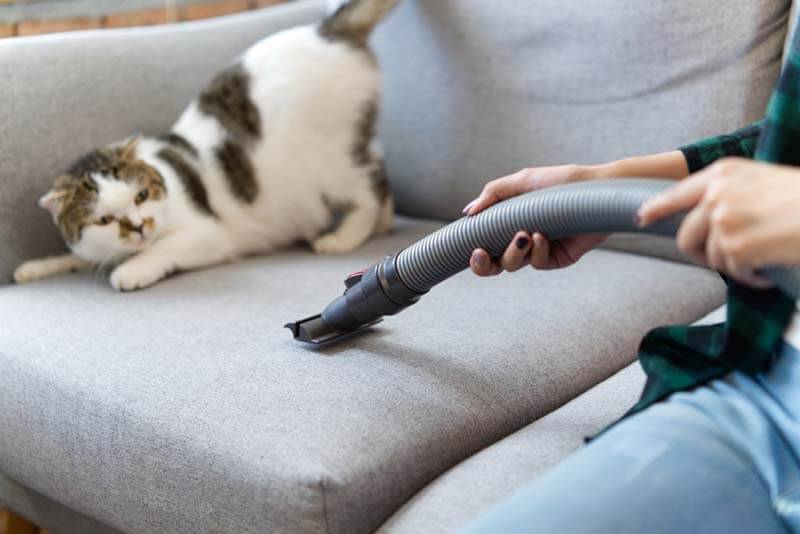
4 reasons why cats are afraid of the vacuum cleaner
Let’s not deny it – loud sounds made by an incomprehensible moving object can be very frightening. From the cat’s point of view, your vacuum cleaner is a huge monster that follows her around the apartment, following her from room to room. Let’s understand why some cats are afraid of a vacuum cleaner.
Lack of contact experience with the object
One of the reasons may be related to previous experience with this device. Many pets are simply frightened of the fact that a large and loud object appears in their lives, which torments them and haunts them throughout the house. In the event that the pet did not have a delicate introduction to the vacuum cleaner at an early age, the sudden arrival of a huge creepy device, of course, can cause a very sharp reaction.
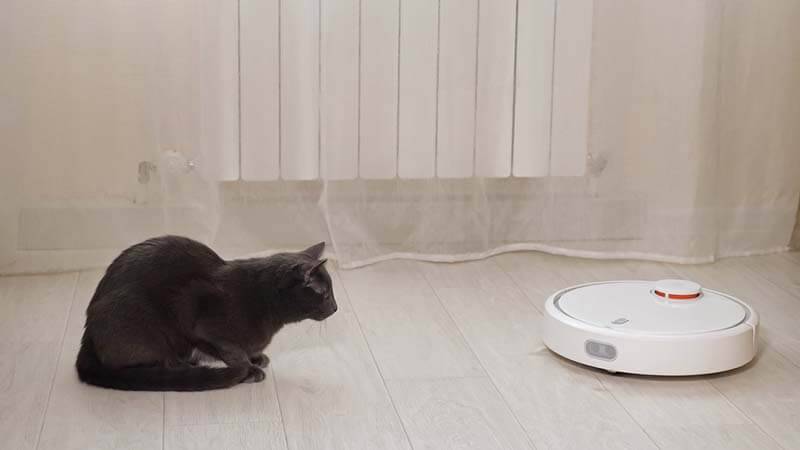
Previous negative association
If your cat has already had an unpleasant experience with vacuum cleaners – for example, someone jokingly scared a pet with such equipment or ran after a four-legged vacuum cleaner all over the apartment, over time, fear can develop into a full-fledged trauma and phobia.
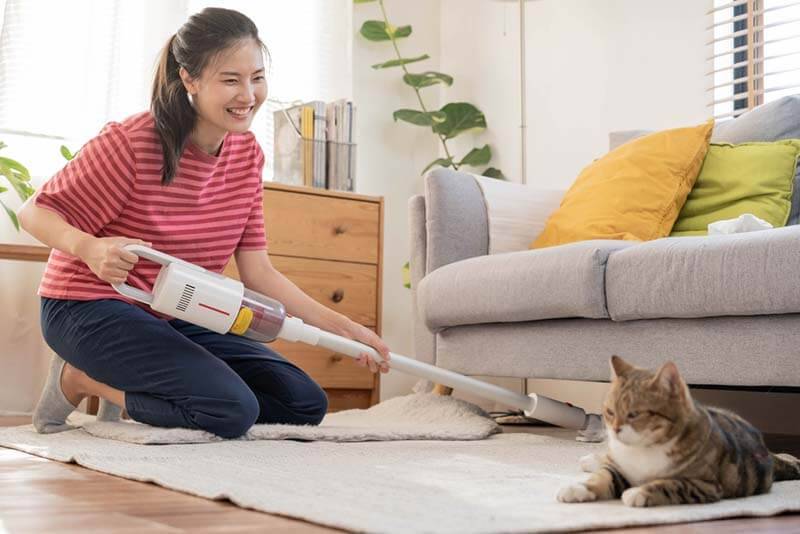
Animal temperament
It is worth remembering that some animals by nature may have a more timid or fearful character than their “peers”. In addition, cats that have previously experienced cruelty and developed a fear of loud noises (shocks, gunshots, etc.) may be terrified of everyday things like fireworks or cleaning for a long time. This may also be the reason why cats may be afraid of the vacuum cleaner.
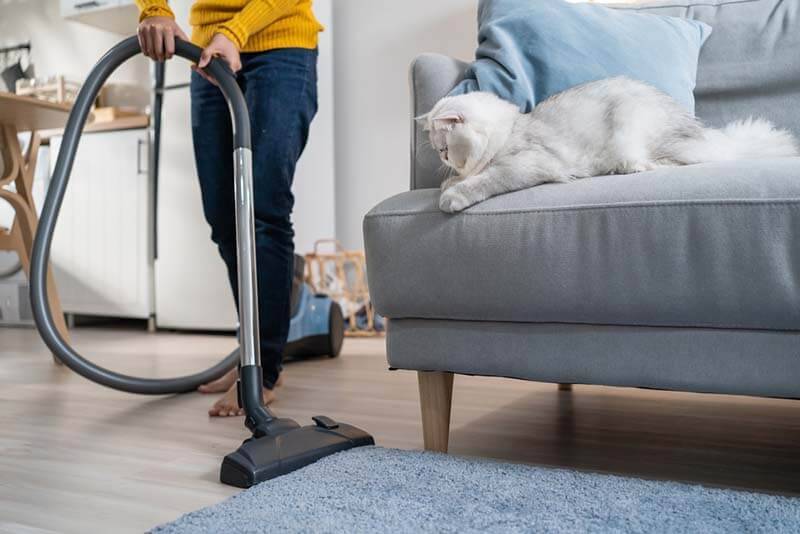
Violation of personal boundaries
Perhaps you decided to use the vacuum cleaner at the wrong time and in the wrong place? It is hardly surprising that a cat can be frightened by the sudden start of cleaning during her afternoon nap. Our furry companions greatly appreciate their personal boundaries and privacy at the right moments. Imagine if you decide to be alone for a while, and at that time a huge and very loud car bursts into your room – of course, this approach is unlikely to cause positive emotions.
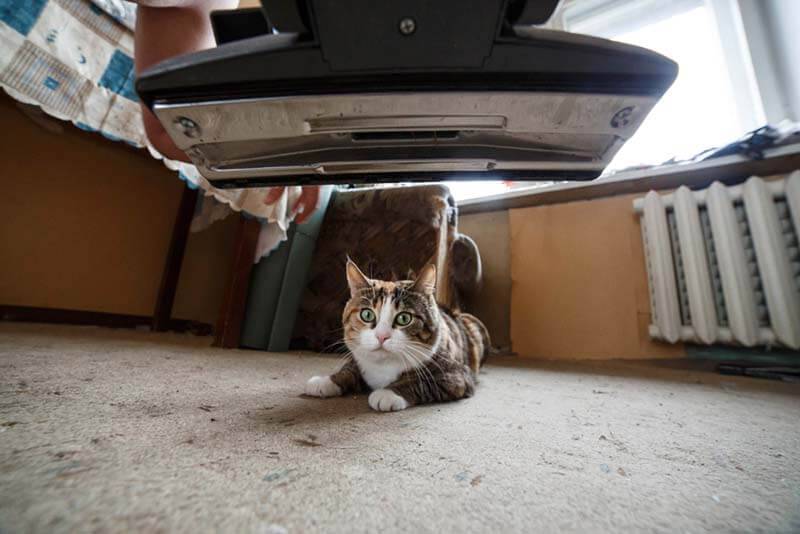
Robot vacuum cleaners
Automatic vacuum cleaners can be a real godsend for pet owners because they allow you to clean pet hair much more often than people clean themselves. Surely you have seen a lot of funny videos on social networks about the interaction of cats with robotic vacuum cleaners. Indeed, since robots make less noise than their conventional counterparts, it may be easier for pets to adapt to the presence of a strange object.
However, an automated vacuum cleaner may not always be the solution to a cat’s fear, as it is still a mysterious animal-like object that roams freely around the apartment. In addition, in practical terms, the presence of a pet can make it difficult for the machine to work – for example, in cases where your furry friend is not accustomed to the tray and can leave a surprise anywhere in the apartment.
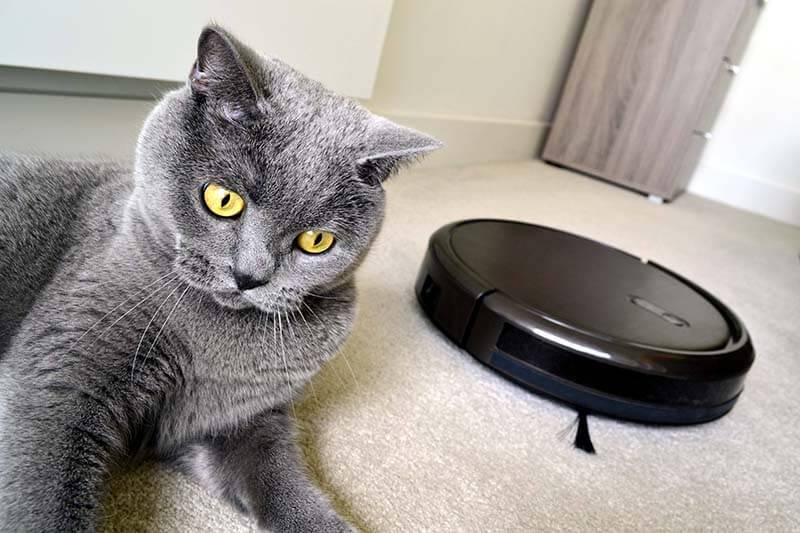
How to wean a cat from being afraid of a vacuum cleaner
Many cats are afraid of the vacuum cleaner, but this is not the end! You can get your pets accustomed to the presence of a vacuum cleaner in their lives and significantly reduce their anxiety levels if you introduce them to the device step by step and gently. To do this, you can use a technique consisting of three points.
Шаг первый
Even being near a non-working vacuum cleaner can be a lot of stress for your pet. Leave the vacuum cleaner in the room and reward your cat for just being in the same room as him. Reward him for passing by the vacuum cleaner, for coming closer to it. Finally, wait until your pet decides to examine and sniff the enemy, and reinforce the positive behavior with treats.
Leave the vacuum cleaner in plain sight for a few days. Periodically move it to other rooms, but do not place it near your cat’s favorite places – a toilet, a bowl or a bed. Keep rewarding your ponytail for not reacting to the vacuum cleaner.
Шаг второй
Turn on the vacuum cleaner in another room. If you live with someone, ask another family member to turn on the vacuum cleaner while you play with the cat through the wall or give her treats. This will help the pet get used to the sounds at a comfortable enough distance for him. If you live alone, run the vacuum cleaner yourself in another room for short periods of time.
Step Three
Take out the vacuum cleaner, but before turning it on, leave it to lie in the room for a while so that your cat has time to prepare for cleaning or escape from the room. Do not turn on the vacuum cleaner while your four-legged friend is sleeping, and do not point the device towards the animal. Keep treats with you to treat your pet if he stays in the same room. Try to briefly turn on the vacuum cleaner.
Such training may require time and patience on your part. Prepare for the fact that it will take more than one day or even a week to prepare your pet, treat the animal with love and respect. Remember that cats are afraid of vacuum cleaners for a reason, and dealing with any fears is a painstaking and methodical process, and very soon your pet will feel better.





